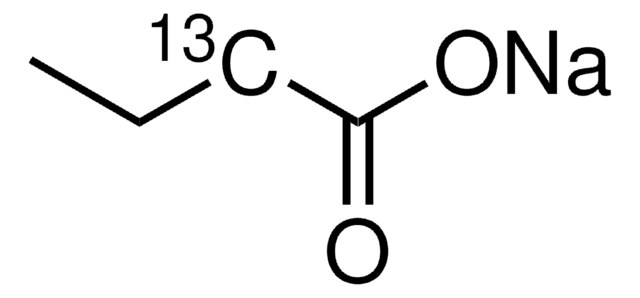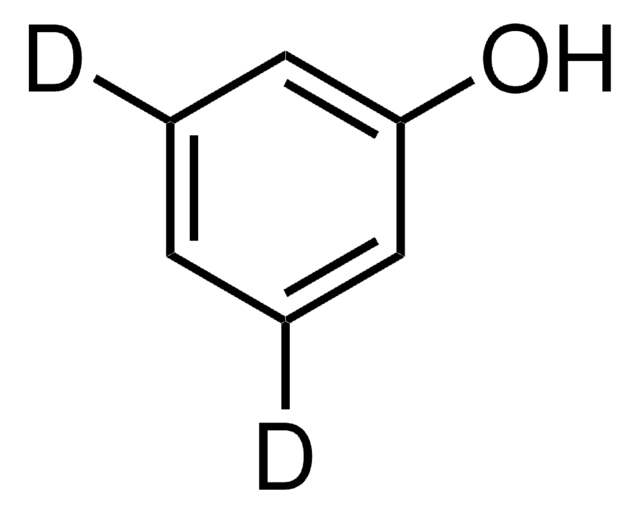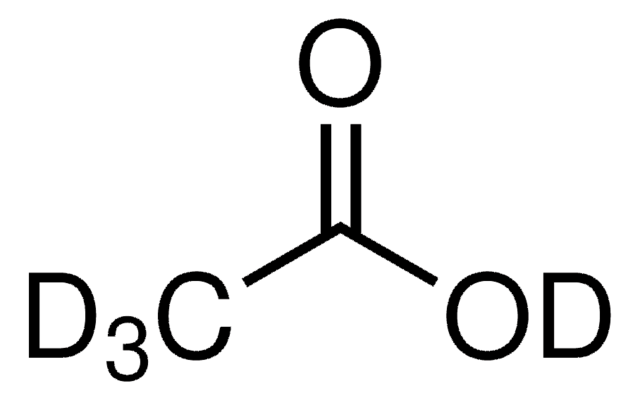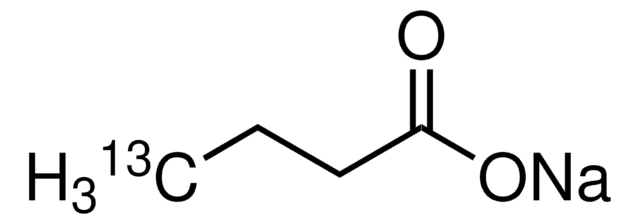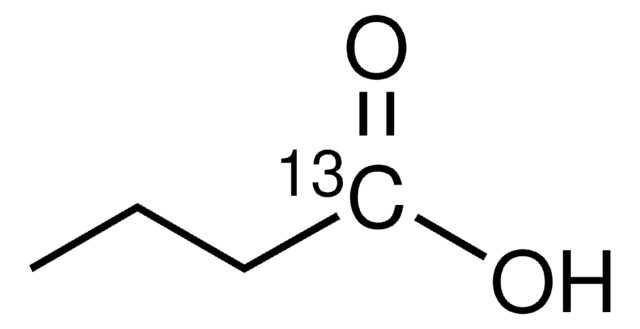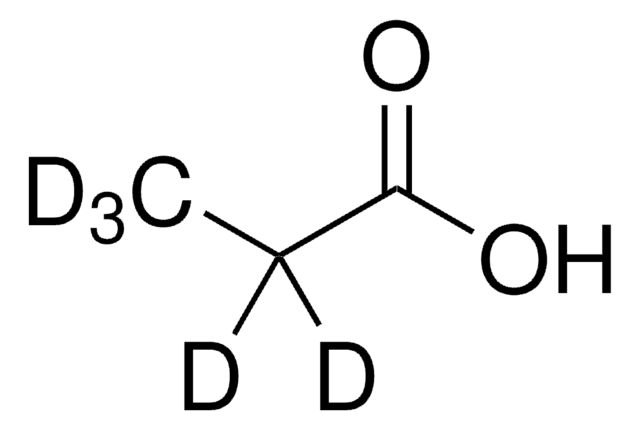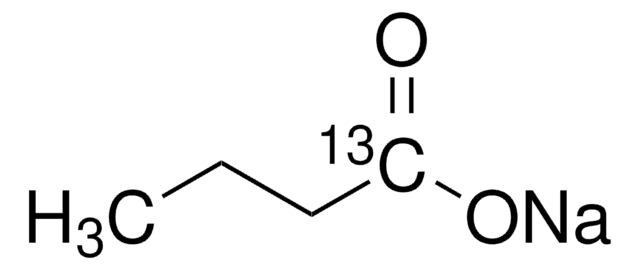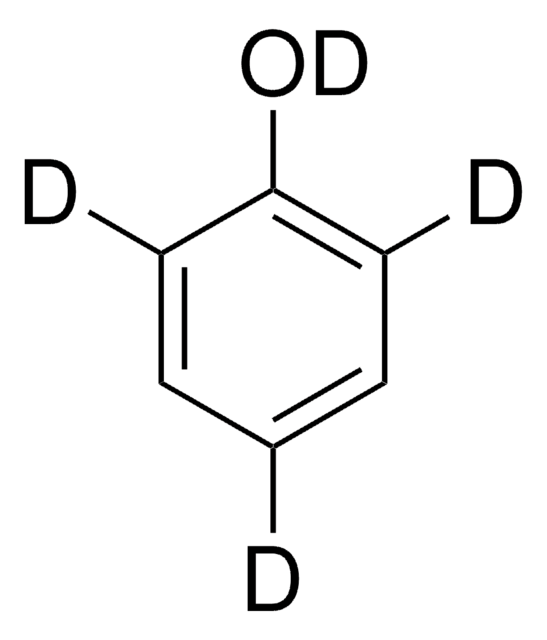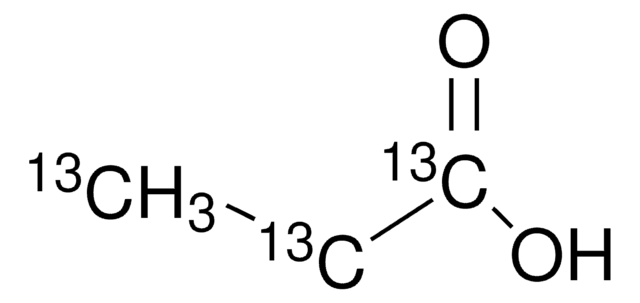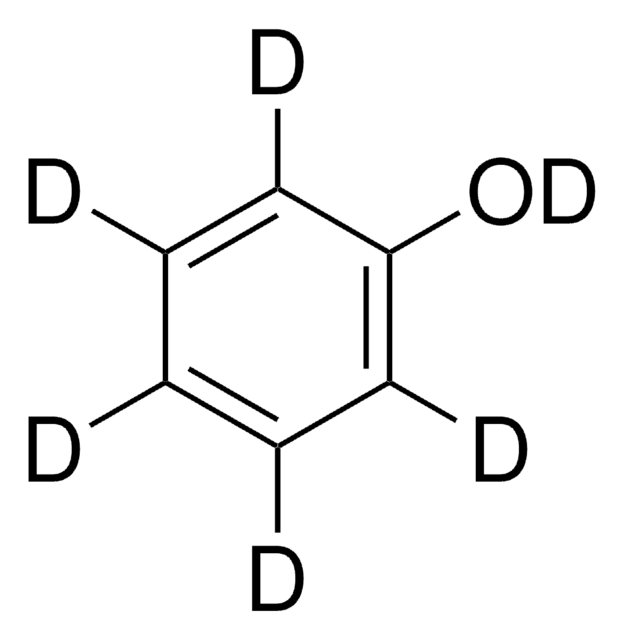492000
Sodium butyrate-2,4-13C2
99 atom % 13C
Synonym(s):
Butyric-2,4-13C2 acid sodium salt
About This Item
Recommended Products
isotopic purity
99 atom % 13C
form
solid
mp
250-253 °C (lit.)
mass shift
M+2
SMILES string
[Na+].[13CH3]C[13CH2]C([O-])=O
InChI
1S/C4H8O2.Na/c1-2-3-4(5)6;/h2-3H2,1H3,(H,5,6);/q;+1/p-1/i1+1,3+1;
InChI key
MFBOGIVSZKQAPD-CFARNWPNSA-M
Related Categories
Packaging
Certificates of Analysis (COA)
Search for Certificates of Analysis (COA) by entering the products Lot/Batch Number. Lot and Batch Numbers can be found on a product’s label following the words ‘Lot’ or ‘Batch’.
Already Own This Product?
Find documentation for the products that you have recently purchased in the Document Library.
Articles
Sigma-Aldrich.com presents an article concerning MRI/MRS and the use of isotopes in hyperpolarization.
Dynamic Nuclear Polarization (DNP) is a phenomenon by which high spin polarization, typically derived from a bath of free radical electrons, is transferred to a nuclear spin bath, enhancing the difference between the nuclear energy levels and thereby producing dramatically enhanced NMR signals for detection.
Our team of scientists has experience in all areas of research including Life Science, Material Science, Chemical Synthesis, Chromatography, Analytical and many others.
Contact Technical Service